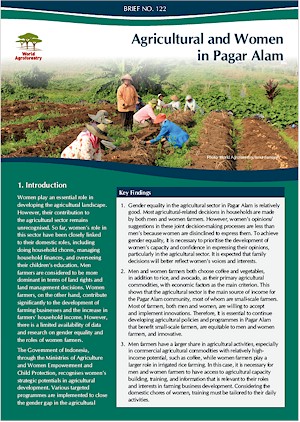This publication is part of a series of briefs describing findings from the EU-funded Governing Multifunctional Landscapes Sustainable Woodfuel project, which aims to contribute to knowledge, options, and networks for more sustainable woodfuel value chains across Sub-Saharan Africa.
Key lessons
- Despite evidence of female participation throughout the charcoal value chain, there is limited systematic sex-disaggregated data and gender analysis for this sector. Information on women’s participation is often embedded in scattered, small case studies and in many cases, observations on such participation lack further analysis. Given this lack of information, it is hardly surprising that gender considerations are relatively absent in national policies and interventions in the charcoal sector.
- Our experiences show that women are often present throughout the woodfuel value chain – as managers of trees and forests, as producers, transporters and traders, and as end consumers. However, due to socially constructed gender roles and relations, women and men often have different motivations, needs and vulnerabilities in relation to their engagement in the charcoal value chain.
- By adopting and consistently implementing a gender-responsive approach, considerable synergies can be identified and leveraged between more efficient and sustainable value chains on one hand, and women’s empowerment and well-being on the other.
Download:
Publication year
2021
Authors
Ihalainen, M.; Awono, A.; Banda, E.; Moombe, K.B.; Mwaanga, B.; Schure, J.; Sola, P.
Language
English
Keywords
women's participation, charcoal, value chain, fuelwood, gender
Geographic
Kenya, Democratic Republic of the Congo, Cameroon, Zambia
























